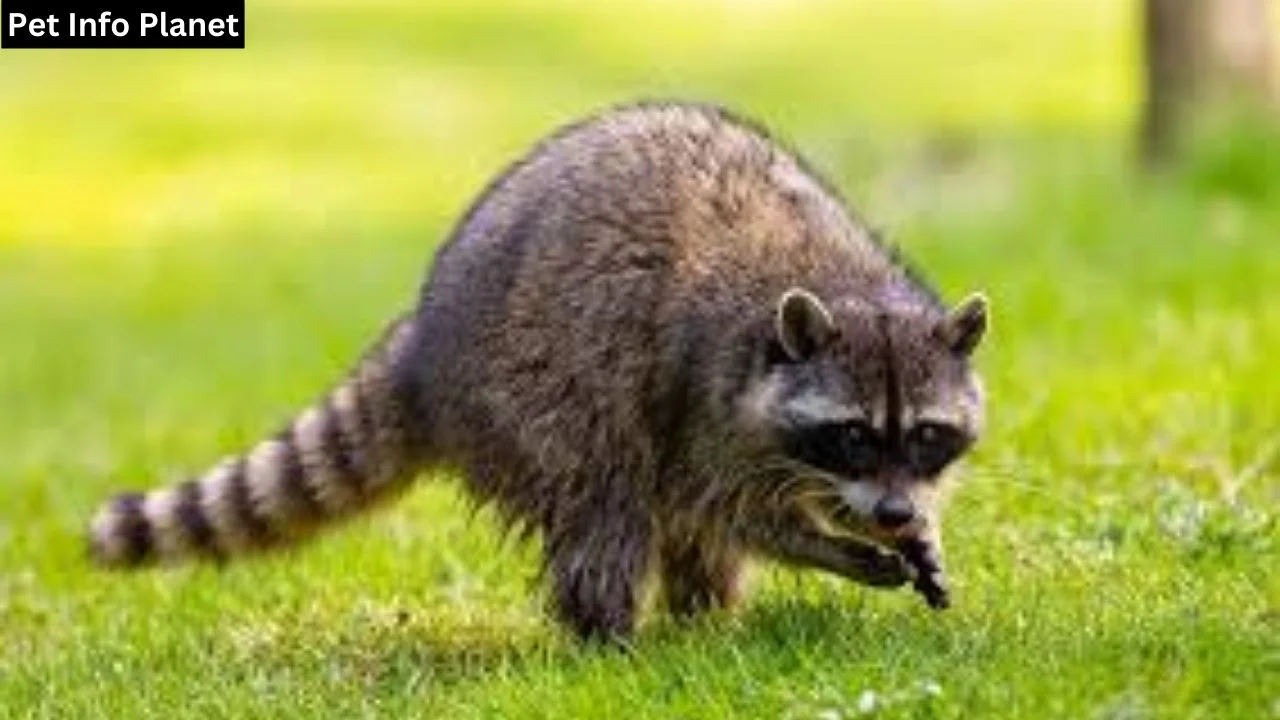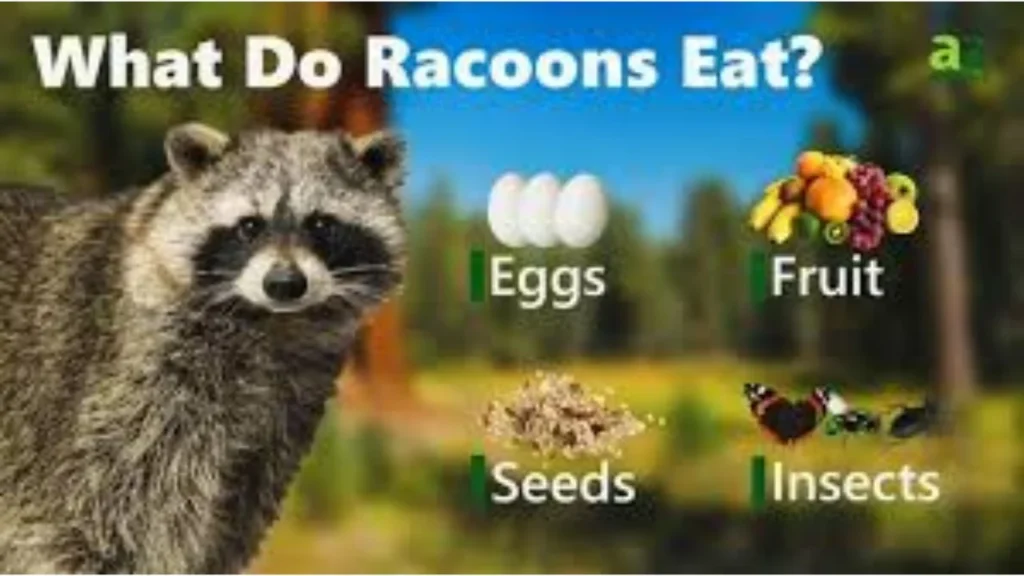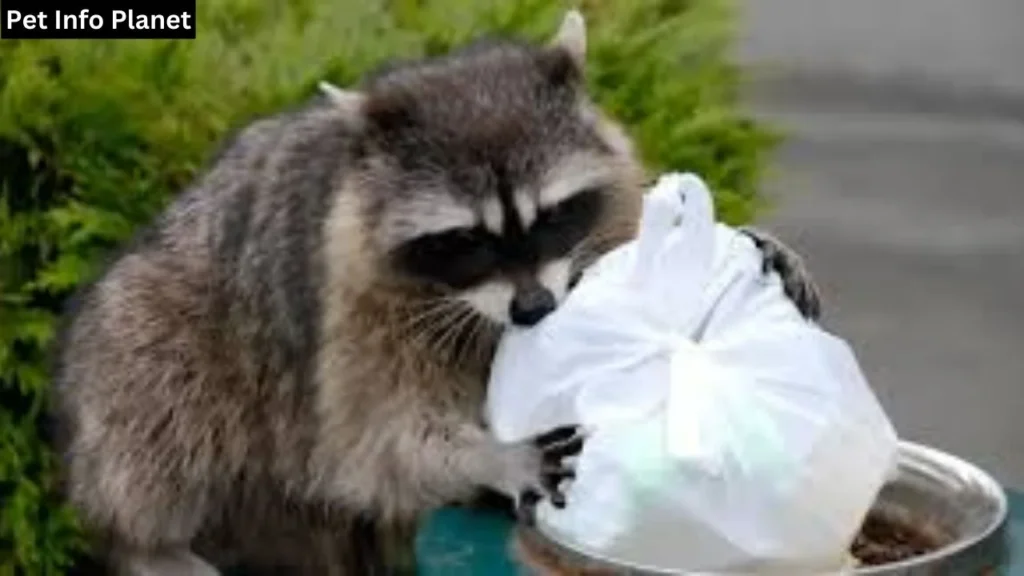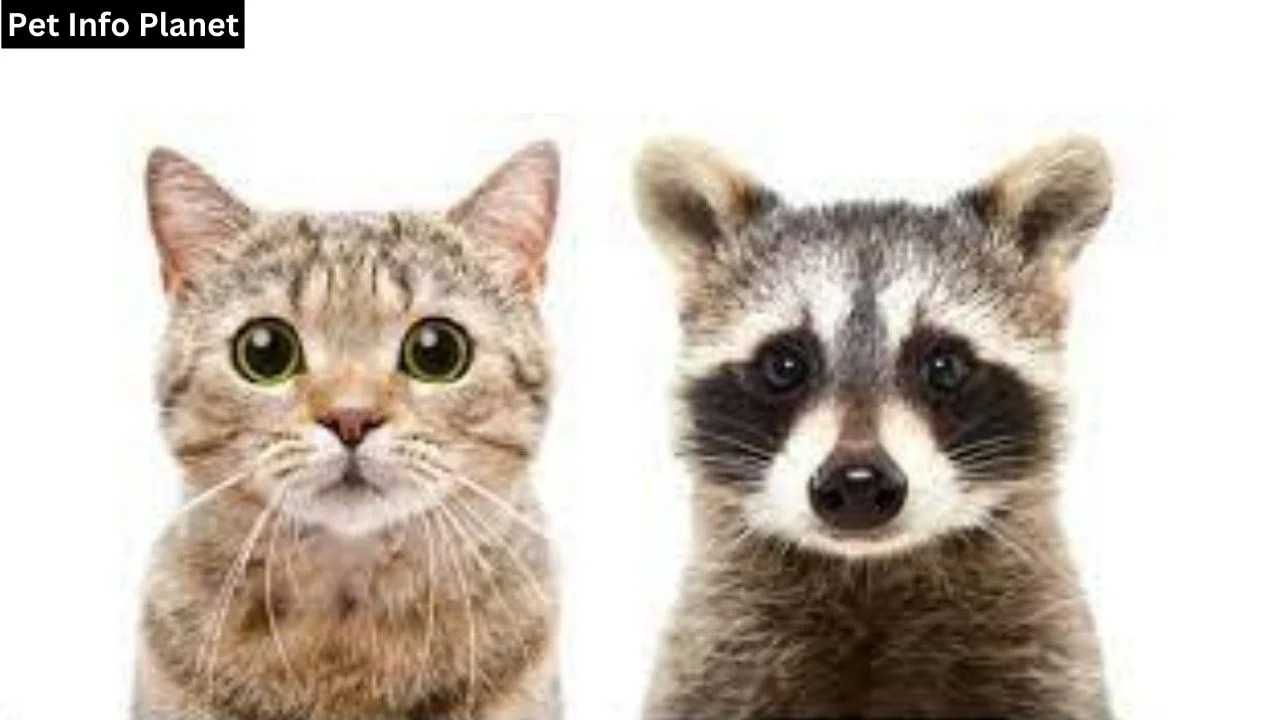Do raccoons eat cats? This question often arises among pet owners concerned about their feline friends’ safety. While raccoons are primarily scavengers with a diet consisting of fruits, nuts, insects, and small animals, the idea of them preying on cats can be worrying. Raccoons are known for their flexibility and opportunistic feeding habits, leading them to explore human habitats for food. This sometimes brings them into contact with household pets, including cats.
Understanding raccoon behavior and dietary preferences is essential in ensuring the safety of your pets. By taking proactive steps, pet owners can minimize the risk of encounters between their cats and these wild creatures. This article will delve into whether raccoons threaten cats, how to keep raccoons away from cat food, and what actions to take if raccoons are frequenting your backyard.
Will Raccoons Hurt Cats?

Do raccoons eat cats? While raccoons are not natural predators of cats, interactions between the two species can sometimes lead to conflicts. Raccoons are generally more interested in scavenging for food than hunting live prey, and their diet mainly consists of fruits, nuts, insects, small mammals, and even garbage. However, under certain circumstances, raccoons can pose a threat to cats.
Raccoons are territorial animals and may become aggressive if they feel their territory is being invaded. If a cat wanders too close to a raccoon’s nest or food source, the raccoon might attack to defend itself or its young. Additionally, raccoons are nocturnal and are more active at night, while many cats explore outside. These nocturnal encounters can sometimes result in confrontations.
Cats, notably smaller or less assertive ones, may be at risk if they encounter a defensive raccoon. Although it’s uncommon for raccoons to kill cats, fights can result in injuries. Scratches and raccoon bites can lead to infections or transmit diseases such as rabies.
To protect your cat from potential harm, it’s essential to supervise outdoor activities, especially during the night. Providing a safe, enclosed space for your cat to explore can reduce the likelihood of dangerous encounters. Understanding that while raccoons do not typically hunt cats, they can still pose a threat if provoked or cornered is crucial for pet safety.
Can Cats and Raccoons Share Diseases?

Do raccoons eat cats? While the answer to this question is generally no, it’s essential to consider other risks posed by raccoon-cat interactions, such as the transmission of diseases.Do raccoons eat cats? Not typically, but they can indeed share several diseases with cats, making it crucial for pet owners to be aware of these health risks.
Rabies Transmission
One of the most significant diseases that raccoons can transmit to cats is rabies. Raccoons are common carriers of rabies, a viral disease that affects the nervous system and is almost always fatal once symptoms appear. If a raccoon bites or scratches a cat, it can transmit rabies, posing a severe health risk to both the cat and potentially humans. Do raccoons eat cats? No, but they can transmit rabies through bites or scratches.
Leptospirosis and Other Diseases
Another disease that can be shared between raccoons and cats is leptospirosis. This bacterial infection is spread through the urine of infected animals, contaminating water and soil. Cats can contract leptospirosis by drinking contaminated water or contacting infected raccoons.
Cat Symptoms include fever, vomiting, and kidney or liver damage. Parasites such as roundworms and fleas can also be transmitted between raccoons and cats. Raccoons often carry Baylisascaris procyonis, a roundworm that can infect cats if they ingest raccoon feces or contaminated soil. Fleas are another common parasite that can jump between raccoons and cats, potentially spreading diseases like bartonellosis (cat scratch fever) and tapeworms.
Minimizing interactions between your pet and raccoons is essential to protect your cat from these health risks.
Ensuring your cat’s vaccinations are up-to-date, especially for rabies, and practicing good hygiene by keeping your yard clean and free of raccoon feces can help reduce the risk of disease transmission. Regular veterinary check-ups and preventative parasite treatments are essential to maintaining your cat’s health.
How To Keep Raccoons Out Of Cat Food
Do raccoons eat cats? While raccoons may not typically prey on cats, they are notorious for scavenging and can be attracted to outdoor cat food. To protect your cat’s food and prevent raccoons from causing a nuisance, here are some effective strategies:
Secure Feeding Stations
Do raccoons eat cats? While it’s unlikely, they can undoubtedly devour cat food if given the chance. To avoid this, create feeding stations that are inaccessible to raccoons. Elevated platforms or enclosed feeding areas can prevent raccoons from reaching the cat food.
Use Raccoon-Proof Containers
Store your cat food in raccoon-proof containers. Airtight bins or containers with secure lids can help keep the scent of the cat food contained, making it less enticing to raccoons.
Remove Food Promptly
Do raccoons eat cats? No, but they may consume cat food left outdoors. Remove leftover cat food promptly after your cat has finished eating to discourage raccoons. Leaving food out overnight can attract raccoons and other wildlife.
By implementing these strategies, you can keep raccoons out of cat food and ensure unwanted visitors do not disturb your pets’ meals. This helps maintain a safe and healthy environment for your cat and the local wildlife.
Raccoons In the Backyard? Here’s What to Do

Do raccoons eat cats? While raccoons may not specifically target cats as prey, their presence in your backyard can still pose risks to your pets and property. If you find raccoons frequenting your yard, here are some steps you can take:
Secure Trash Cans
Do raccoons eat cats? No, but they are attracted to easily accessible food sources like trash. Use raccoon-proof lids or secure them with bungee cords to prevent raccoons from accessing your trash cans.
Remove Attractants
Eliminate potential food sources that may attract raccoons. This includes fallen fruits, birdseed, and pet food left outdoors. Removing these attractants can discourage raccoons from visiting your yard for food.
Seal Off Potential Den Sites
Do raccoons eat cats? While they typically do not, raccoons may still seek shelter in your yard. Block access to potential den sites such as under decks, sheds, or attics to prevent raccoons from establishing a habitat on your property.
Use Deterrents
Install motion-activated lights or sprinklers to scare away raccoons. Commercial raccoon repellents or homemade solutions like ammonia-soaked rags can also effectively deter raccoons from your yard.
Fencing
Do raccoons eat cats? Not usually, but a fence can help keep them out of your yard. Install a sturdy wall at least 6 feet tall and bury the bottom a few inches underground to prevent raccoons from digging underneath.
Conclusion
In conclusion, “Do raccoons eat cats?” may concern many pet owners, but the reality is more nuanced. Raccoons are primarily scavengers with a varied diet, and while they may not typically prey on cats, interactions between the two species can sometimes lead to conflicts. Understanding the behavior and dietary preferences of raccoons is crucial in safeguarding the well-being of household pets. Pet owners can minimize the risk of potential encounters by taking proactive measures such as supervising outdoor activities, securing cat food, and implementing deterrents to discourage raccoons from frequenting yards.
Additionally, ensuring that cats are up-to-date on vaccinations and practicing good hygiene can protect them from diseases that raccoons may transmit. While raccoons may not commonly eat cats, responsible pet ownership involves being aware of potential risks and taking steps to mitigate them.
FAQ’s
Do raccoons eat cats?
Raccoons do not typically eat cats. While they are scavengers and can be aggressive if threatened, direct predation on cats is rare. However, conflicts and disease transmission can occur, so keeping pets safe and monitored is essential.
What do raccoons eat?
Raccoons eat a varied diet, including fruits, nuts, insects, small mammals, and fish. They are opportunistic scavengers, often consuming garbage and pet food if accessible, demonstrating their adaptability to natural and urban environments.
Why do raccoons like cat food?
Raccoons like cat food because it is high in protein and fat, making it a nutritious and appealing option. Its strong scent attracts them, and raccoons are opportunistic feeders, readily exploiting accessible food sources.
Why does my cat run like a raccoon?
Your cat might run like a raccoon due to its playful or instinctual behavior, mimicking raccoons’ quick, agile movements. Cats often exhibit bursts of energy, known as “zoomies,” leading to raccoon-like running patterns.

